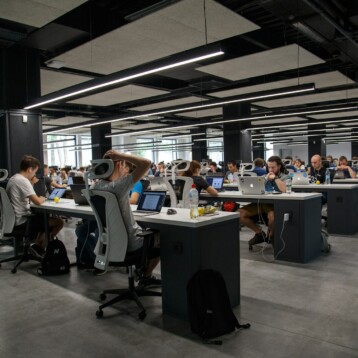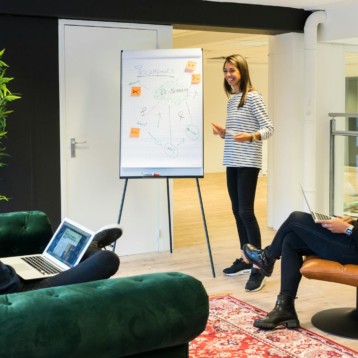
The landscape of work has undergone a seismic shift over the past decade, with coworking spaces and hybrid work models emerging as defining features of the modern professional ecosystem. These trends are not just passing phenomena but are reshaping the very fabric of workplace culture, driven by compelling data and the evolving needs of the workforce.
The Evolution of Workspaces
The transition from traditional offices to coworking spaces mirrors a broader transformation in work practices, influenced by changing technology and employee expectations. Initially, coworking spaces provided freelancers and startups with a flexible alternative to home offices or coffee shops. Today, they serve a wide demographic, including large corporations, reflecting a significant shift in the workplace paradigm. Studies show that the number of coworking spaces globally is expected to surpass 40,000 by 2024, a testament to their growing appeal (Global Coworking Growth Study, 2020).
Hybrid Work: A Catalyst for Coworking Spaces
Hybrid work models, which blend in-office and remote work, have become increasingly prevalent, especially in the wake of the global health crisis. A report by Accenture found that 83% of workers prefer a hybrid work model, highlighting the demand for flexible working environments (Accenture’s “Future of Work” Study, 2021). Coworking spaces are uniquely positioned to accommodate this shift, offering the infrastructure and flexibility required for effective hybrid work.
The Social Dimension of Coworking
Beyond practicality, coworking spaces offer a sense of community that remote work often lacks. A survey by Deskmag indicated that 74% of coworkers were more productive, 86% had a larger business network, and 93% had a bigger social network since joining a coworking space (Deskmag Coworking Survey). These statistics underscore the value of the collaborative and social aspects of coworking environments.

Technological Integration
Technology is a cornerstone of the coworking experience, facilitating a blend of in-person and virtual collaboration. Coworking spaces are equipped with high-speed internet, shared workspaces, and digital collaboration tools, ensuring they meet the needs of a tech-savvy workforce. This integration is crucial for supporting the diverse work styles present in today’s hybrid work culture.
A Flourishing Hub for Professionals
Atlanta, with its dynamic professional landscape, has become a fertile ground for the coworking movement. The city’s coworking spaces reflect a broader trend towards flexible work solutions that cater to a diverse workforce. Ravi Kahan, Founder of Imagine Coworking, shares his perspective on the burgeoning coworking scene in Atlanta:
“As the demand for versatile work environments grows, Atlanta has become a beacon for innovation in the coworking space sector. At Imagine Coworking, we’re at the forefront of this shift, offering a coworking space in Atlanta that not only provides the flexibility modern professionals need but also fosters a community of collaboration and creativity. It’s this blend of functionality and community that makes coworking spaces so vital in today’s hybrid work landscape.”
This insight from a local expert highlights the integral role coworking spaces play in supporting the hybrid work model, especially in vibrant cities like Atlanta.
The Future of Coworking
The future of coworking looks bright, with an anticipated increase in demand as the hybrid work model continues to gain traction. Innovations in coworking spaces are expected to keep pace with the evolving requirements of the workforce, offering more personalized and flexible work solutions.
Conclusion
The rise of coworking and hybrid work signifies a fundamental shift in the way we approach the concept of the workplace. Backed by compelling statistics, the growth of coworking spaces reflects a deeper change in societal and professional values, emphasizing flexibility, community, and innovation. As we look to the future, coworking spaces, particularly in burgeoning hubs like Atlanta, will undoubtedly play a pivotal role in shaping the new normal of work.










